Stromboli (1949)
“I want to get out. I want to get out. I want to get out!”
|
Synopsis: |
|
Genres, Themes, Actors, and Directors:
Review: It’s impossible to see this marriage-of-convenience going in a positive direction — though surprisingly enough, Vitale is a mostly decent guy who simply wants to live a quiet life with Bergman on his island, and it’s Bergman who reveals herself to be a classist prig: When she tells Vitale, “I’m different. I’m very different from you. I belong to another class” (and maintains he’ll never earn enough money to deserve her), we struggle to maintain our compassion for her plight. Sure, it’s ridiculous to see local villagers criticizing Bergman for being so artistic and independent, but this is their home town, after all — she’s the newcomer. The bulk of the film consists of Bergman simply wandering the island and trying to pass the days, including accompanying her husband and other men on an energetic fishing trip: … and appealing to a kind local priest (Renzo Cesana) for help, confessing her “sinful” past and even seeming to awkwardly come on to him at one point. Clearly, there isn’t much room for anything to happen in this loosely improvised storyline other than for Bergman and Vitale to acknowledge they’re not compatible — but getting Bergman off the island turns out to be an insurmountable challenge, given lack of funds and the presence of a pesky active volcano. It was interesting reading the following anecdote in TCM’s article:
Poor Bergman — and yet, she invited herself into the situation by writing a fan letter to Rossellini and offering her acting services to him. The rest, as film lovers know, is cinematic and romantic history, with the couple making three children and five more films together — including Voyage to Italy (1954). Notable Performances, Qualities, and Moments: Must See? Links: |
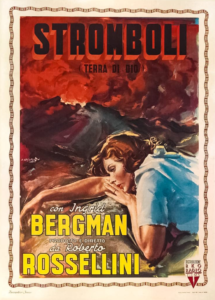
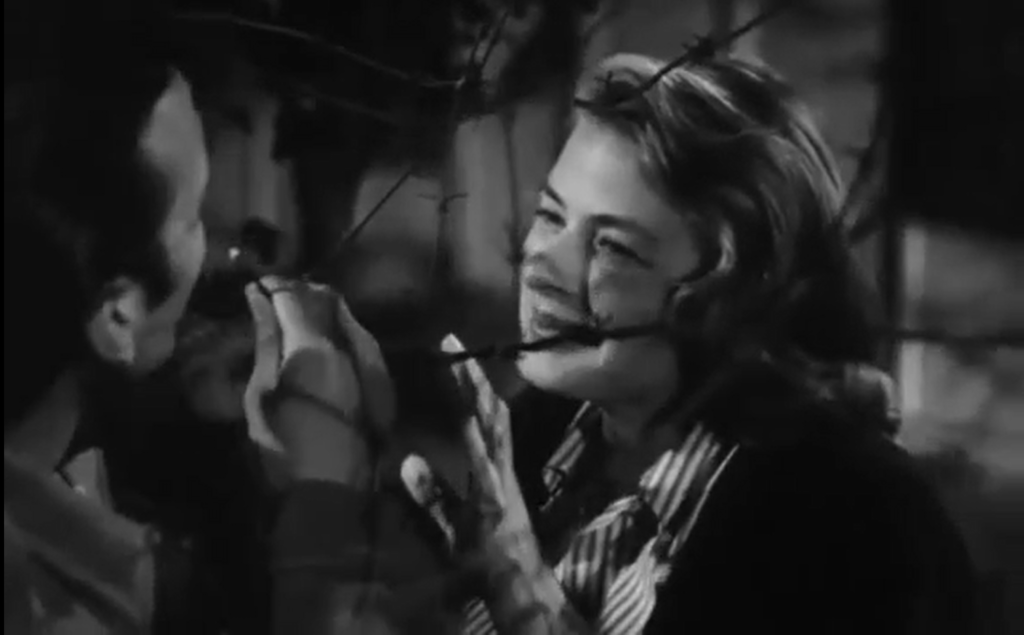

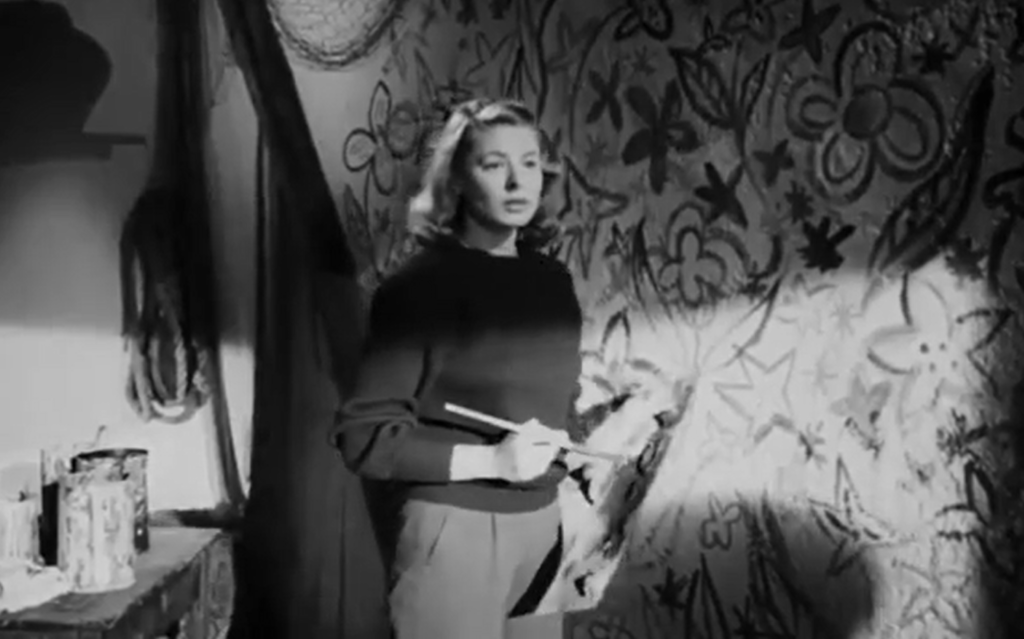
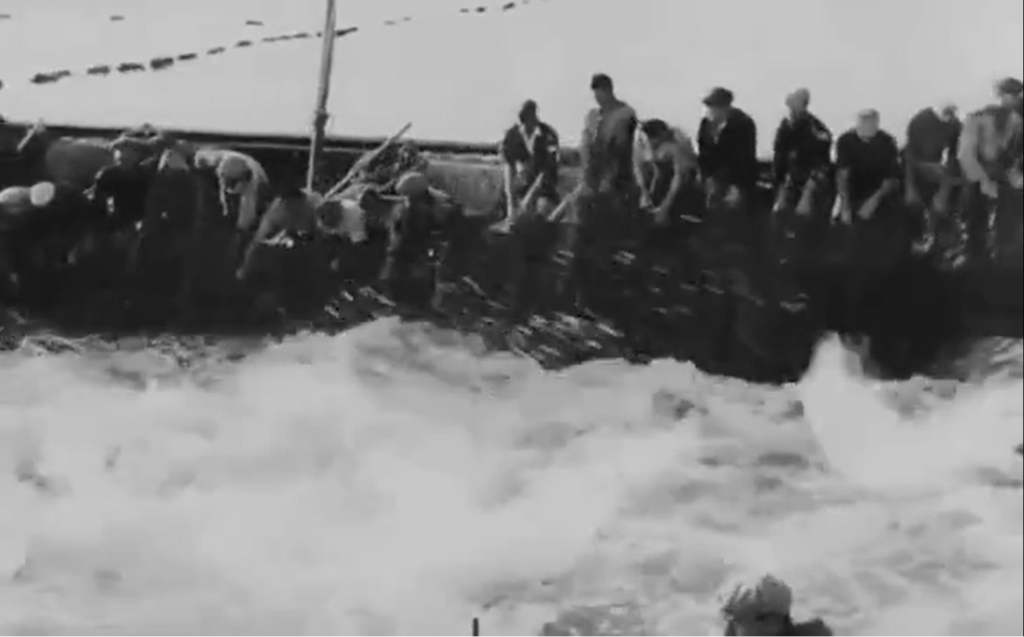
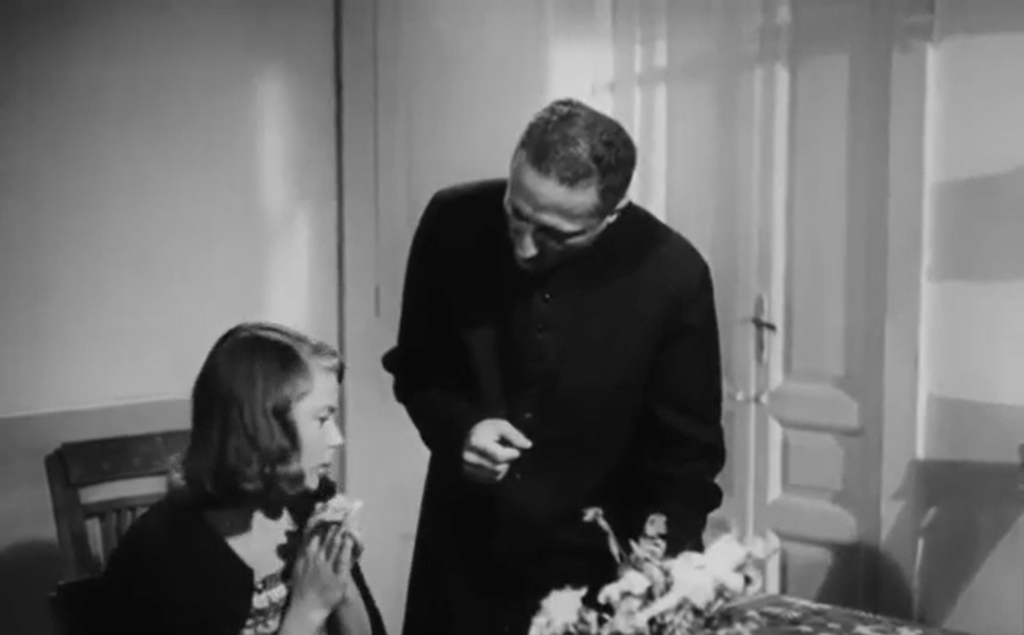
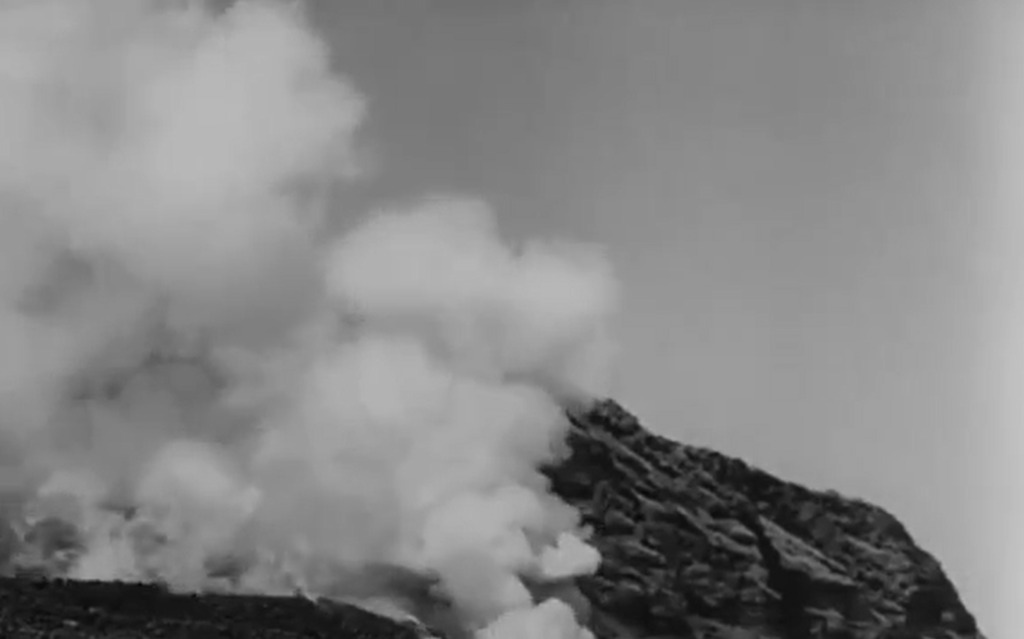
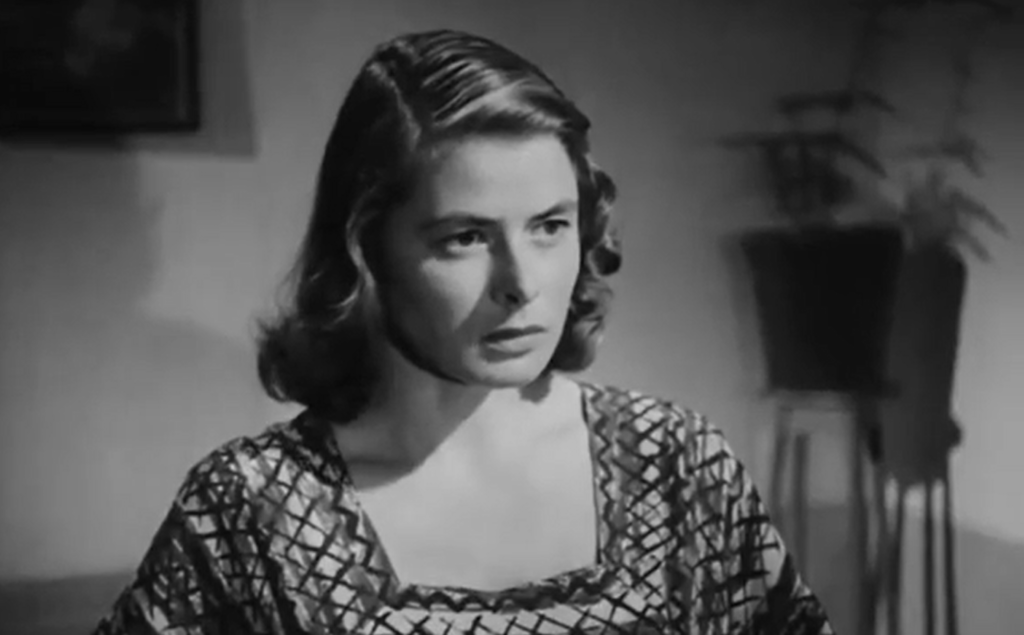
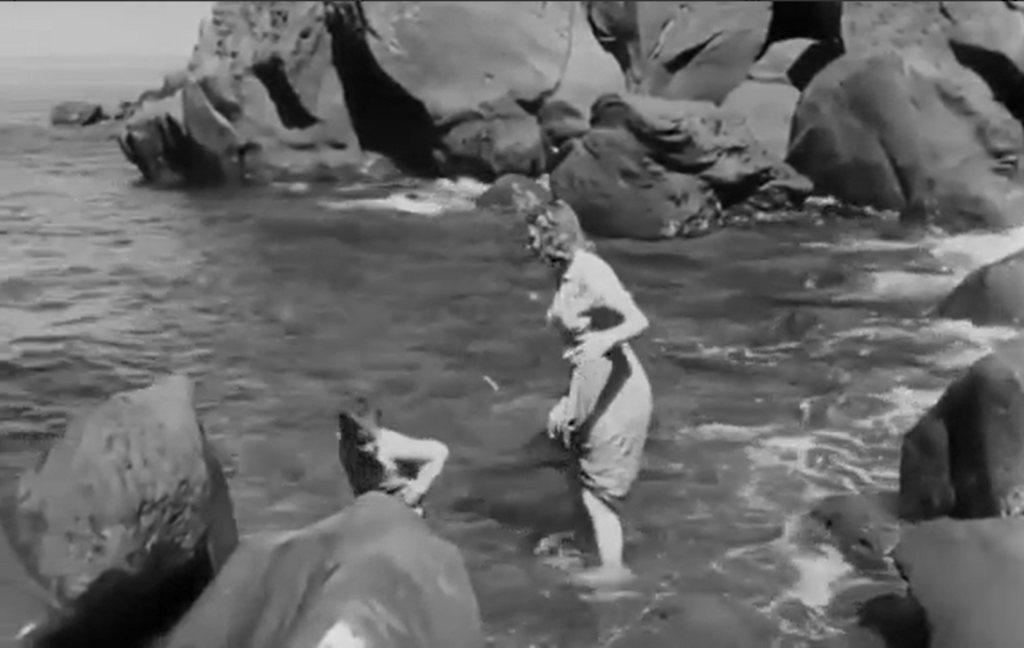
One thought on “Stromboli (1949)”
First viewing. Not must-see.
‘Stromboli’ is problematic for a number of reasons – but the set-up is certainly unique. Still, it could have been much better than it is, given the potency of the premise.
There are crucial things we don’t know. We start out in a prison camp but it doesn’t appear to be any sort of Nazi camp. It looks like the people there (we mostly see how the women are treated) are being detained but not necessarily badly treated. So it’s not like Bergman’s Karin is desperate to get out because she’s being tortured. (That would make a difference.)
For someone who is a ‘backwards’ fisherman from a tiny village, Antonio’s English is pretty good. Where would he have learned it? In the camp? Not likely. Plus, Antonio isn’t stupid, even if he is a product of his upbringing. Why would he not have a conversation with Karin beforehand about what the people and culture of his town are like? Why wouldn’t Karin ask?
Bergman’s overall attitude (as noted) is troublesome. She’s quarrelsome almost from the moment she and Antonio get to his home. Wouldn’t she be even *somewhat* relieved and appreciative – at least at first – of no longer being in a prison camp? And, to a lesser degree… she’s now with a sort-of hunky guy who is passionate about her… and, at one point, she admits to having feelings about him… so doesn’t that help? Also… she makes next-to-no effort to learn even simple, everyday Italian expressions; wouldn’t she instinctively want to do that for survival reasons?
Yes, we get that she’s frustrated. We understand that the situation has inherent pitfalls. But for another thing… Karen and Antonio are having sex and she becomes pregnant – yet we see almost no indication of the possible closeness that would be likely to result.
But, again, it’s certainly a messy situation.
Ultimately, though there’s the slight implication that Karin will continue with Antonio, the film doesn’t seem to know how to resolve itself – with Karin bizarrely climbing the volcano and melodramatically screaming to God ad nauseam.